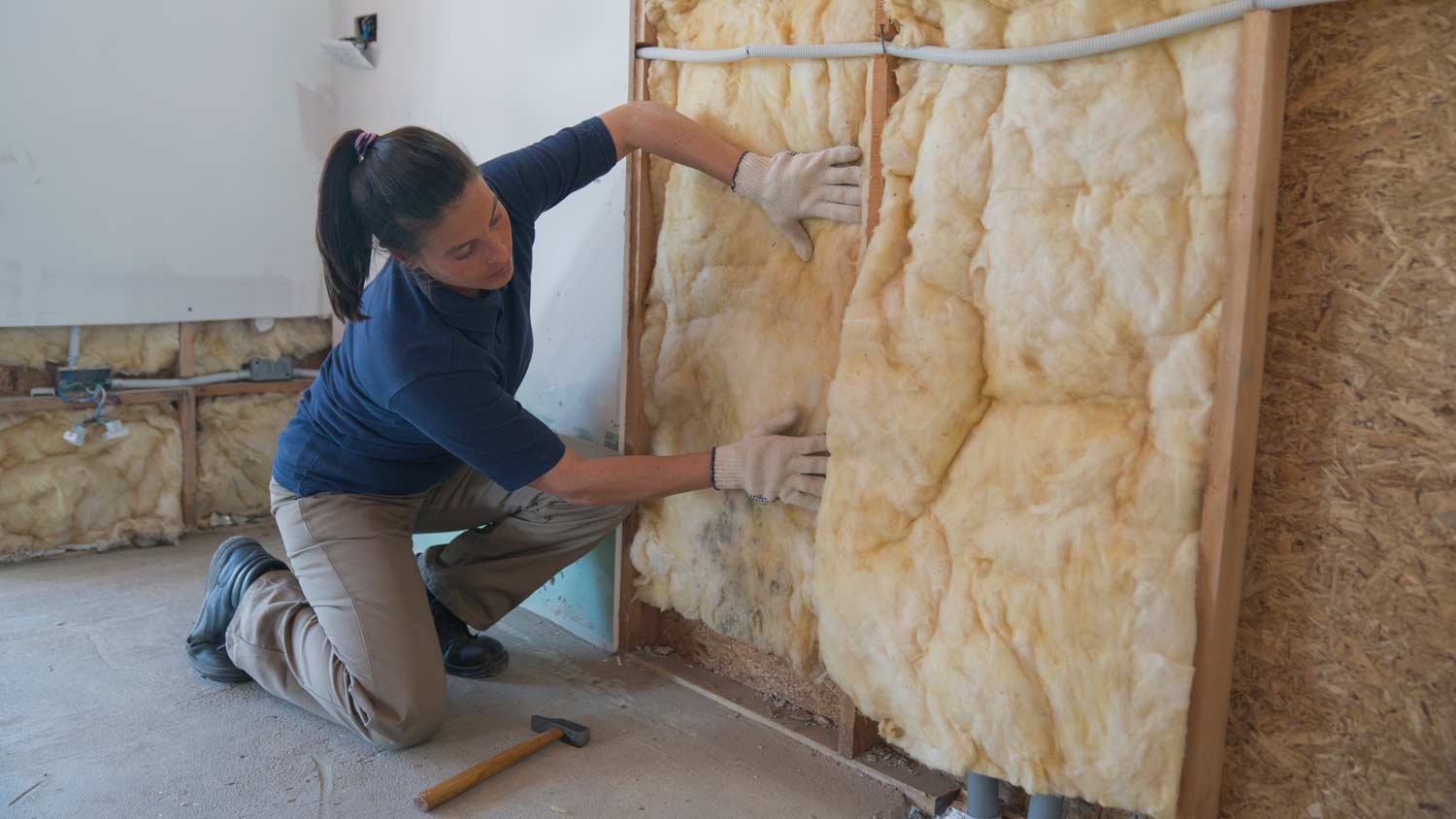Should You Insulate Interior Walls? 4 Reasons to Consider
Protect your home from energy bills, noise, fire, and moisture


The average cost to insulate a home is about $1,817.
Insulation costs $0.30-$6.75 per square foot.
Added insulation will save you money on energy bills.
Interior wall insulation can act as a sound barrier against airborne and impact noises.
Flame-resistant insulations prove effective in minimizing impact and damage from fires.
Insulation is an afterthought for many homeowners, but it’s the first step to keeping you and your family comfortable during extreme temperatures. While exterior insulation gets all the glory, insulating your interior walls has way more to offer than lowering your energy bill—although the extra dollars in your pocket don’t hurt. Interior insulation won’t be seen, but its impact is felt. Here are a few reasons to consider why you might insulate your interior walls.
Energy Efficiency
Your HVAC system is likely running 24/7, 365 days a year—and an extra day during leap years. Depending on how your home is insulated, it may be working overtime in the summer and winter months. And while you may chalk up your energy bill to a sacrifice for comfort, insulating your home and interior walls will improve your home’s energy efficiency.
As a homeowner, it helps to understand that in keeping your home temperature controlled, you’re actually trying to control heat flow. During the summertime, the goal is to keep heat out, while the opposite stands for winter. Heat flows from warmer to cooler areas until there is one universal temperature. For example, in the winter, the warmth from heated areas will seep into unheated living spaces, like an attic or basement. Because heat flow can travel through interior walls, as well as ceilings and floors, you’ll need insulation with a high insulation R-value to minimize three things—heat flow transfer, an overworked HVAC system, and your energy bill.
Insulation costs the average homeowner about $1,817, or $0.30 to $6.75 per square foot; however, depending on the type of insulation, square footage, installation location, and materials, it ranges between $1,066 and $2,593.
Noise Reduction
Whether you consider your home a safe haven from the outside world or a hub for gathering friends and family, it’s safe to say that most people don’t want any sound penetrating through the walls and floors. Do you insulate interior walls to protect against noise? You can. Installing insulation can soundproof a room and your home against airborne and impact noises. With the right insulation, you can cut down on noises that carry from TVs and people talking, as well as footsteps and vibrations from large appliances—think washers and dryers.
Every type of insulation won’t work for noise reduction. For example, reflective insulation—a type of attic insulation—reflects heat from the sun. Although it’s great for blocking out heat and keeping your home cool in the summer, it’s less than ideal for blocking out any noises. Soundproofing insulations like fiberglass, cellulose, and spray foam insulation work best on interior walls to create a sound barrier. Homeowners spend approximately $2,500, or $1.50 to $4.90 per square foot, including materials and labor, on spray foam insulation costs—or the price of peace and quiet.
Fire Protection

How often do you think about fire protection? Beyond the typical sprinkler or fire extinguisher, you can take further steps to protect your home with fire-resistant insulation. Materials like sheep wool are flame-resistant, but what does that mean? In case of a fire, it can actually slow down the spread of flames. The interior walls and floors of a home may seem like kindling. If your home is properly insulated against fire, it not only stops more flames from igniting but it also acts as a barrier to block the path of fire from traveling through and damaging your home. Not to mention, it gives you and your family time to safely evacuate, which—if you ask me—alone makes fire-resistant insulation worth it.
Moisture Control
Insulation straddles a fine line when it comes to moisture control. If improperly installed, it can either block areas where you need ventilation or leave gaps between the walls that trap moisture. The first leaves you with dry air that can cause itchy eyes, sore throats, and dry skin, while the second could lead to a mold problem. That’s why it’s often better to leave the job of insulating interior walls to a local insulation professional. The majority of the moisture that moves in and out of your home travels through the air, and insulation will seal your home to prevent moisture from showing up like an unwanted guest.




- 10 Signs That Your Home Is Poorly Insulated
- How Much Does Insulation Save on Energy Bills?
- How to Better Insulate Your Home: Try These 10 Tips
- 6 Reasons to Use Insulation for Your Bathroom Walls: Preventing Mold, Rot, and More
- How to Insulate a Floor for Minimum Drafts and Maximum Comfort
- What Is Insulation and Why Do You Need It for Your Home?
- How to Remove Fiberglass Insulation
- Is Pipe Insulation Worth It?
- How to Install Spray Foam Insulation Like a Pro
- The Pros and Cons of Cellulose Insulation











